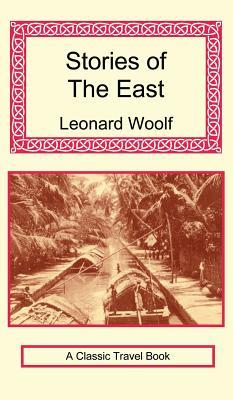Although Leonard Woolf has long been revered as one of the great literary minds of the 20th century, he is seldom remembered as a writer of fiction. While his novel The Village in the Jungle has the status of a minor classic, his superb collection of short stories dating back to his time as a colonial administrator in Ceylon has been almost completely forgotten. This slender volume represents the first time that Stories of the East has been available to the general reader. Originally published in 1921 by the Hogarth Press in an edition limited to 300 copies, these stories have hardly seen the light of day since. Sir Christopher Ondaatje, an expert on Leonard Woolf and author of Woolf in Ceylon, provides a specially commissioned introduction to this edition of Stories of the East, in which he argues the case for the enduring importance of the three stories 'A Tale Told by Midnight, ' 'The Two Brahmans' and 'Pearls and Swine'. Stories of the East is not typical of Woolf, but these three pieces are of vital importance in understanding his mistrust of and dislike for colonialism. The stories provide disturbing commentaries about the disintegration of the colonial process and the uncomfortable moral ground occupied by the servants of the British Government in Ceylon prior to the Great War.

Although Leonard Woolf has long been revered as one of the great literary minds of the 20th century, he is seldom remembered as a writer of fiction. While his novel The Village in the Jungle has the status of a minor classic, his superb collection of short stories dating back to his time as a colonial administrator in Ceylon has been almost completely forgotten. This slender volume represents the first time that Stories of the East has been available to the general reader. Originally published in 1921 by the Hogarth Press in an edition limited to 300 copies, these stories have hardly seen the light of day since. Sir Christopher Ondaatje, an expert on Leonard Woolf and author of Woolf in Ceylon, provides a specially commissioned introduction to this edition of Stories of the East, in which he argues the case for the enduring importance of the three stories 'A Tale Told by Midnight, ' 'The Two Brahmans' and 'Pearls and Swine'. Stories of the East is not typical of Woolf, but these three pieces are of vital importance in understanding his mistrust of and dislike for colonialism. The stories provide disturbing commentaries about the disintegration of the colonial process and the uncomfortable moral ground occupied by the servants of the British Government in Ceylon prior to the Great War.